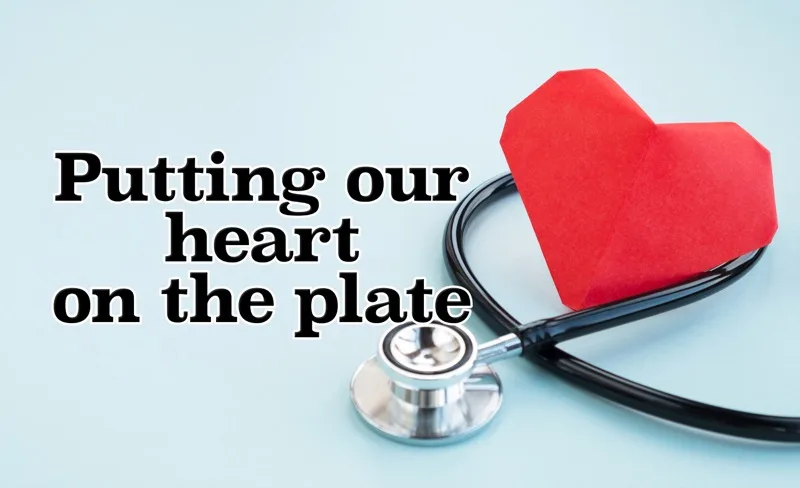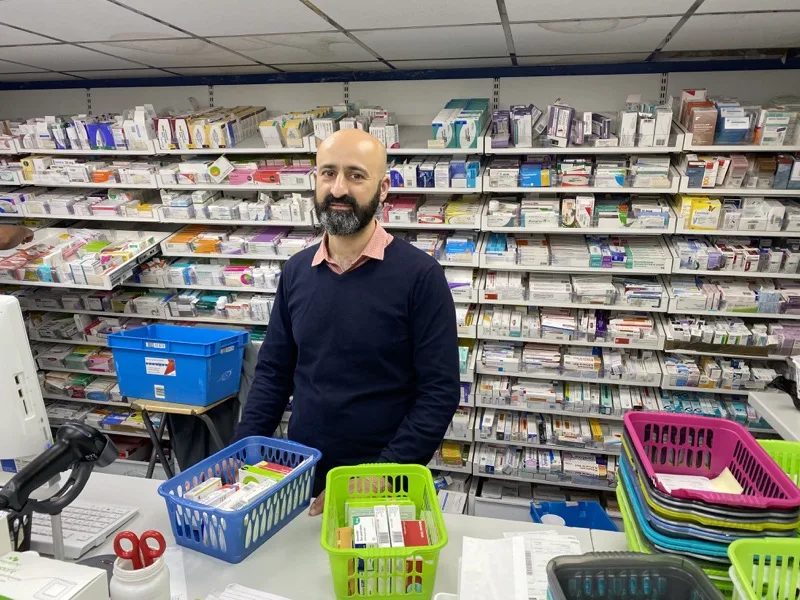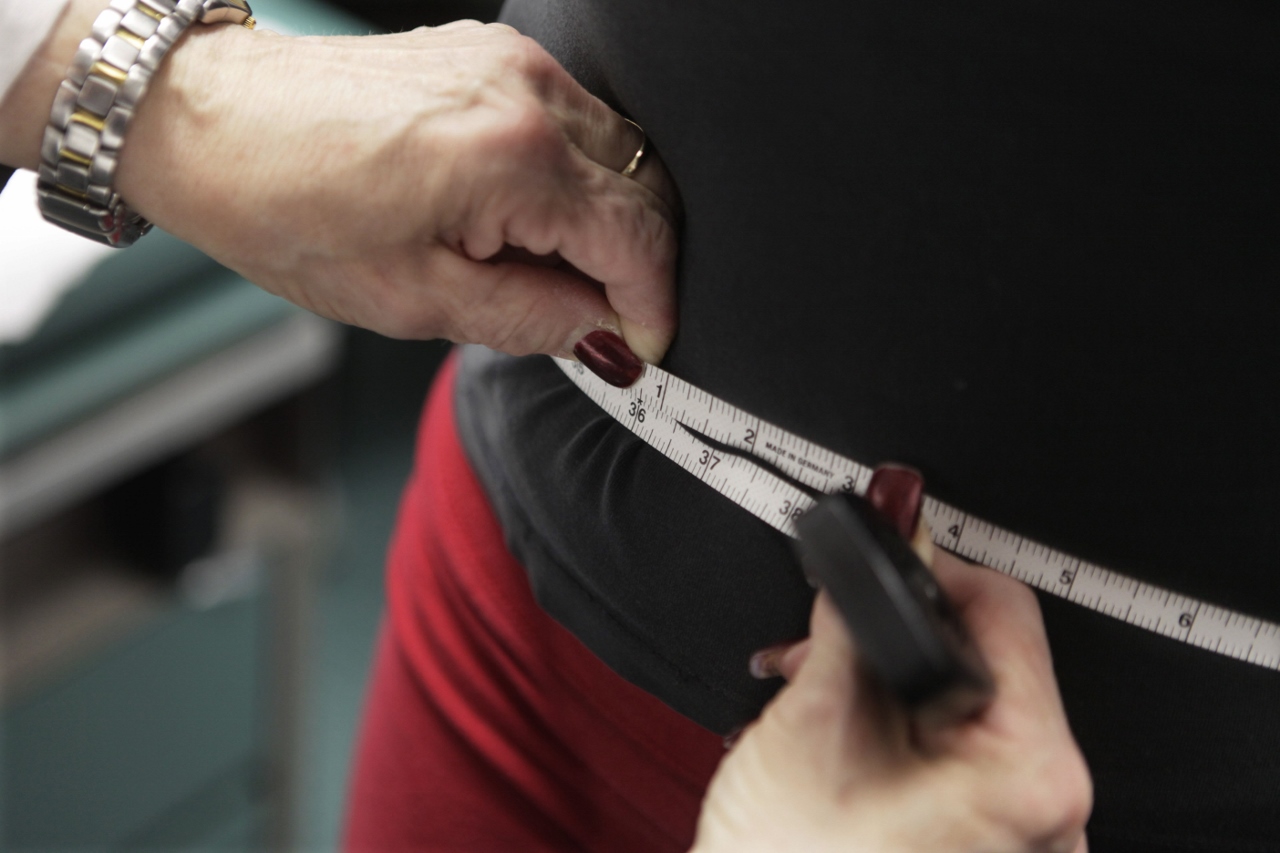
Research suggests that people of South Asian ethnicity in the UK have a higher risk of high blood pressure and coronary heart disease than people of white ethnicity and are up to six-times more likely to develop type 2 diabetes.
However, there are many steps we can take to reduce the risks explains Dr Shahed Ahmad, National Clinical Director for Cardiovascular Disease Prevention at NHS England, and Dr Chirag Bakhai, the National Primary Care Advisor for Diabetes.
What are coronary heart disease and diabetes?
Coronary heart disease is a form of cardiovascular disease. It occurs when the flow of oxygen-rich blood to the heart muscle is blocked or reduced, usually due to fatty deposits in the blood vessels. This can lead to angina, heart attacks or heart failure.
Diabetes is when someone has high blood sugar levels. There are two main types of diabetes; Type 1 diabetes is a lifelong autoimmune disorder which is considered unrelated to lifestyle, while Type 2 diabetes is the much more common form and is known to be linked to lifestyle behaviours, particularly carrying excess body weight.

Dr Bakhai says: “Having diabetes increases the risk of developing cardiovascular disease as well as other serious problems such as kidney disease and sight loss. Having higher blood sugar and blood pressure levels are associated with greater risks”.
Tackling risk factors
“Having a family member with type 2 diabetes or CVD, doesn’t mean that it’s inevitable that you will get the condition too,” says Dr Ahmad.
“We can reduce our risk of both diseases by tackling other common risk factors – smoking, being overweight, eating an unhealthy diet, and being inactive.”

Being physically active is estimated to reduce your risk of cardiovascular disease by 35% and type 2 diabetes by 40%. Health experts say adults aged 19 to 64 should aim for 150 minutes of moderate physical activity a week, at an intensity which is enough to increase your breathing, or 75 minutes of vigorous intensity.
“Over the last 20 years, we have seen more than a doubling of the size of the population living with type 2 diabetes, with a particularly concerning increase at younger ages. This increasing prevalence largely relates to changes in lifestyle and more people tending to live with excess body weight” explains Dr Bakhai.
“Having a nutritious diet, being physically active and keeping to a healthy weight can prevent type 2 diabetes and also reduce the risk of developing cardiovascular disease.”

The Eat Well website has more information to help you adopt a healthier diet, low in saturated fat, sugar, and salt. If you need help to manage your weight, you can also speak to your GP practice.
If you have a high risk of developing type 2 diabetes, you might be advised to join the free NHS Healthier You NHS Diabetes Prevention Programme for help making positive lifestyle changes. If you’re living with obesity and also have diabetes, high blood pressure or both, you could get support through the free NHS Digital Weight Management Programme.
What else can I do to protect my health?
If you’re over 40 and not known to have high blood pressure, high cholesterol needing treatment, cardiovascular disease or diabetes, you may be eligible for a free NHS health check. It can spot problems before you notice them, helping you make lifestyle changes and get treatment if needed.
It includes:
- blood pressure check – around a third of adults in the UK have high blood pressure and an estimated 4.2 million people have it without knowing. Identifying people with high blood pressure, so they can get treatment and reduce their risk of a heart attack or stroke, is one of five actions the NHS has recommended to improve the health of people from black and ethnic minority groups, as well as those in other high-risk groups. Everyone aged over 40 should check their blood pressure at least every 5 years, while those with high blood pressure should be checked at least once a year if it remains stable and at well-managed levels.
- cholesterol test – if you have too much cholesterol, it builds up around your organs and in your arteries, increasing your risk of a heart attack or stroke. High cholesterol can be effectively treated through medication
Take up the offer of annual health check if you are offered it due to other conditions. For example, people aged 14 and over with a severe mental illness, such as bipolar disease or psychosis, should also be invited for an annual physical health check, and people with a learning disability can have an annual health check.

Community pharmacies can also provide blood pressure and cholesterol checks, as well as help to stop smoking or cut back on alcohol. You can check the services offered in your area at http://www.nhs.uk/find-a-pharmacy.
If you have any conditions needing treatment, take your prescribed medication. In addition to a healthier lifestyle, many people need to take prescribed medications to treat and prevent serious illness. “If you need help to manage your medicines or to remember when to take them, ask your pharmacist for help,” says Dr Ahmad. “In addition to practical tips, such as setting an alarm to remind you to take your medicines, you might find tools such as Dossett boxes helpful.”
Have your seasonal vaccinations. People with a heart condition, diabetes or other underlying health conditions are at greater risk of serious illness from infections. If you have one of these long-term conditions, you will probably be eligible for free flu and COVID-19 vaccines from the NHS, alongside other people considered to be at increased risk. It’s important to have both vaccinations to ensure you are protected during winter when viruses spread most and to keep your immunity topped-up as protection fades over time and viruses change.
Local NHS services will invite those eligible for their COVID-19 and flu jab from 11 September – please wait for your invite. From 18 September, national booking services will open. Go to www.nhs.uk/seasonalvaccinations for more information.
Attend your diabetic eye screening appointments

Diabetic eye screening is important if you have diabetes as it helps to prevent sight loss. Eye problems caused by diabetes are known as diabetic retinopathy and can occur when blood vessels at the back of the eye leak or become blocked, potentially affecting sight. Screening can detect this early before you notice any changes to your vision and allow for protective steps to be taken.
More information about the NHS Diabetic Eye Screening Programme, can be found here.
“I feel so much healthier” – Parveen’s story

Busy mum of two Parveen Ahkter put on weight after having her children and becoming a carer to her parents.
“When you’ve had a C-section, weight seems to gather around your tummy, and this was bothering me.”
The 44-year-old from West Bromwich had high blood pressure, a family history of type 2 diabetes and had little success after trying different diets. A quick online search led her to Diabetes UK’s Know Your Risk tool and her score came back as ‘at risk’.
“It was really quick and simple to fill out, I was surprised to receive a call back from the Healthier You NHS Diabetes Prevention Programme only a few days later.
“It was perfect timing because I wanted to get help to lose weight from a trusted source that was also free.”
She began group sessions online in August 2020 delivered by health coach, Jamie Gregg.
“The sessions really help to give tips each week for what to focus on. They also help to get you back on track if you fall off. The educators are really nice, and Jamie always makes time to answer questions before or after the sessions, going above and beyond to help me.”
“The sessions have taught me about portion control – I now think about how much food I am putting on my plate. I also make sure to buy lots of fruits and veg when I go shopping.”
She also found the information about physical activity to be helpful. Although frequently doing housework, Parveen realised she needed to get her heart beating faster. She has been able to increase her activity levels at her own pace and has noticed the positive effect.
“I feel great that I can actually run and not end up gasping. I can now run up and down the stairs with my children and not find it difficult.”
Further support

For help to stop smoking use the free Smokefree National Helpline on 0300 123 1044.
Get help with prescription costs from the NHS Help with Health Costs helpline on 0300 330 134.
Access support from Diabetes UK, Heart UK or the British Heart Foundation.
Tune in to these Affinity Xtra podcasts: To hear more from Dr St John about diabetes, or sports and exercise medicine specialist Dr Sam Botchey discuss the importance of exercise.















